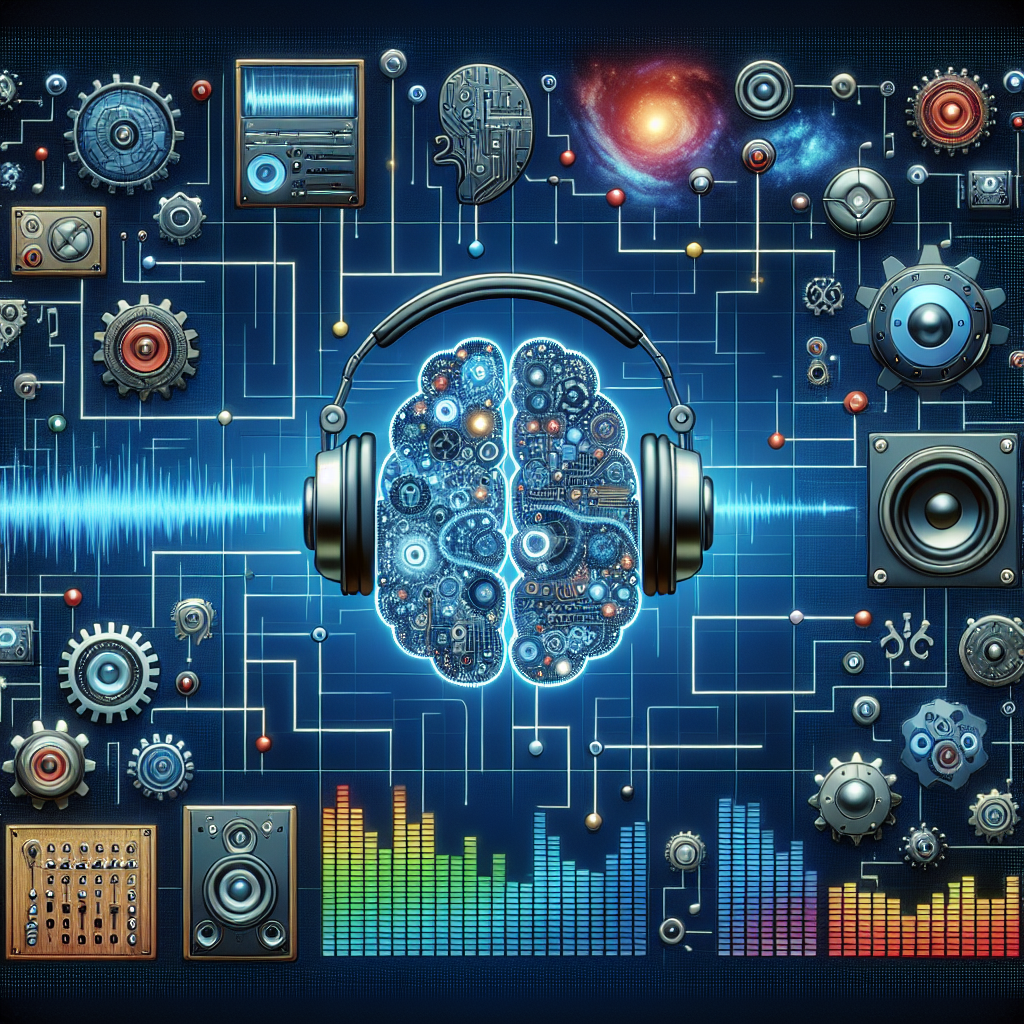Artificial Intelligence (AI) has been making waves in various industries, and the world of game sound design is no exception. With advancements in AI technology, game developers are now able to create more immersive and dynamic soundscapes that enhance the overall gaming experience for players. In this article, we will explore how AI is revolutionizing game sound design and shaping the future of the gaming industry.
Evolution of Game Sound Design
Game sound design has come a long way since the early days of video games. In the past, game developers relied on pre-recorded sound effects and music tracks to create the audio experience for their games. While this approach was effective in creating a basic level of immersion, it lacked the flexibility and adaptability needed to truly engage players.
With the introduction of AI technology, game sound design has entered a new era of possibilities. AI algorithms are now able to analyze gameplay data in real-time and generate dynamic sound effects that react to the actions of the player. This means that the audio experience of a game can now change based on the player’s decisions, creating a more personalized and immersive gaming experience.
One of the key ways in which AI is revolutionizing game sound design is through the use of generative algorithms. These algorithms are able to create new sound effects and music tracks on the fly, allowing for a more dynamic and unpredictable audio experience. This not only adds to the replay value of a game but also keeps players engaged and immersed in the gameplay.
Another way in which AI is transforming game sound design is through the use of machine learning algorithms. These algorithms are able to analyze vast amounts of audio data to identify patterns and trends, allowing for more realistic and lifelike sound effects. For example, AI algorithms can analyze the sound of footsteps on different surfaces and generate realistic footstep sounds based on the player’s movements in the game.
AI is also being used to enhance the spatial audio experience in games. By using advanced algorithms, game developers are able to create realistic 3D audio environments that accurately simulate the way sound travels in the real world. This creates a more immersive and realistic audio experience for players, making them feel like they are truly part of the game world.
FAQs
Q: How is AI being used in game sound design?
A: AI is being used in game sound design in a variety of ways, including generative algorithms that create dynamic sound effects, machine learning algorithms that analyze audio data to create realistic sound effects, and spatial audio algorithms that enhance the immersive experience of games.
Q: What are the benefits of using AI in game sound design?
A: The benefits of using AI in game sound design include a more immersive and dynamic audio experience for players, increased replay value, and the ability to create more realistic and lifelike sound effects.
Q: Will AI replace human sound designers in the gaming industry?
A: While AI is certainly changing the way sound design is done in the gaming industry, it is unlikely to completely replace human sound designers. Human creativity and intuition are still essential in creating compelling audio experiences for games, and AI is simply a tool that can enhance the creative process.
Q: Are there any drawbacks to using AI in game sound design?
A: One potential drawback of using AI in game sound design is the risk of creating repetitive or generic sound effects. Since AI algorithms rely on patterns and trends in audio data, there is a possibility that they may generate similar sounds for different actions in the game. However, this can be mitigated by fine-tuning the algorithms and incorporating human input into the sound design process.
In conclusion, AI is revolutionizing game sound design and shaping the future of the gaming industry. With the ability to create dynamic and immersive audio experiences, AI is changing the way players interact with games and enhancing the overall gaming experience. As AI technology continues to advance, we can expect to see even more innovative and creative uses of AI in game sound design, further pushing the boundaries of what is possible in the world of gaming.

